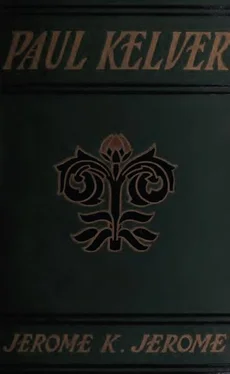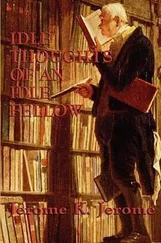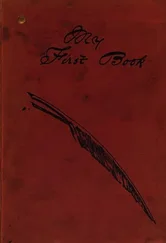Jerome Jerome - Paul Kelver
Здесь есть возможность читать онлайн «Jerome Jerome - Paul Kelver» весь текст электронной книги совершенно бесплатно (целиком полную версию без сокращений). В некоторых случаях можно слушать аудио, скачать через торрент в формате fb2 и присутствует краткое содержание. Город: New York, Год выпуска: 1902, Издательство: Dodd, Mead & Company, Жанр: Классическая проза, на английском языке. Описание произведения, (предисловие) а так же отзывы посетителей доступны на портале библиотеки ЛибКат.
- Название:Paul Kelver
- Автор:
- Издательство:Dodd, Mead & Company
- Жанр:
- Год:1902
- Город:New York
- ISBN:нет данных
- Рейтинг книги:3 / 5. Голосов: 1
-
Избранное:Добавить в избранное
- Отзывы:
-
Ваша оценка:
- 60
- 1
- 2
- 3
- 4
- 5
Paul Kelver: краткое содержание, описание и аннотация
Предлагаем к чтению аннотацию, описание, краткое содержание или предисловие (зависит от того, что написал сам автор книги «Paul Kelver»). Если вы не нашли необходимую информацию о книге — напишите в комментариях, мы постараемся отыскать её.
Paul Kelver — читать онлайн бесплатно полную книгу (весь текст) целиком
Ниже представлен текст книги, разбитый по страницам. Система сохранения места последней прочитанной страницы, позволяет с удобством читать онлайн бесплатно книгу «Paul Kelver», без необходимости каждый раз заново искать на чём Вы остановились. Поставьте закладку, и сможете в любой момент перейти на страницу, на которой закончили чтение.
Интервал:
Закладка:
The anxiety it gave me! the long tossing hours in bed! the tramping of the bewildering streets! Even advice when asked for was denied me.
“You must learn to think for yourself,” said my father, who spoke eloquently on the necessity of early acquiring sound judgment and what he called “commercial aptitude.”
“No, dear,” said my mother, “Mr. Hasluck wanted you to spend it as you like. If I told you, that would be spending it as I liked. Your father and I want to see what you will do with it.”
The good little boys in the books bought presents or gave away to people in distress. For this I hated them with the malignity the lower nature ever feels towards the higher. I consulted my aunt Fan.
“If somebody gave you half-a-crown,” I put it to her, “what would you buy with it?”
“Side-combs,” said my aunt; she was always losing or breaking her side-combs.
“But I mean if you were me,” I explained.
“Drat the child!” said my aunt; “how do I know what he wants if he don't know himself. Idiot!”
The shop windows into which I stared, my nose glued to the pane! The things I asked the price of! The things I made up my mind to buy and then decided that I wouldn't buy! Even my patient mother began to show signs of irritation. It was rapidly assuming the dimensions of a family curse, was old Hasluck's half-crown.
Then one day I made up my mind, and so ended the trouble. In the window of a small plumber's shop in a back street near, stood on view among brass taps, rolls of lead piping and cistern requisites, various squares of coloured glass, the sort of thing chiefly used, I believe, for lavatory doors and staircase windows. Some had stars in the centre, and others, more elaborate, were enriched with designs, severe but inoffensive. I purchased a dozen of these, the plumber, an affable man who appeared glad to see me, throwing in two extra out of sheer generosity.
Why I bought them I did not know at the time, and I do not know now. My mother cried when she saw them. My father could get no further than: “But what are you going to do with them?” to which I was unable to reply. My aunt, alone, attempted comfort.
“If a person fancies coloured glass,” said my aunt, “then he's a fool not to buy coloured glass when he gets the chance. We haven't all the same tastes.”
In the end, I cut myself badly with them and consented to their being thrown into the dust-bin. But looking back, I have come to regard myself rather as the victim of Fate than of Folly. Many folks have I met since, recipients of Hasluck's half-crowns—many a man who has slapped his pocket and blessed the day he first met that “Napoleon of Finance,” as later he came to be known among his friends—but it ever ended so; coloured glass and cut fingers. Is it fairy gold that he and his kind fling round? It would seem to be.
Next time old Hasluck knocked at our front door a maid in cap and apron opened it to him, and this was but the beginning of change. New oilcloth glistened in the passage. Lace curtains, such as in that neighbourhood were the hall-mark of the plutocrat, advertised our rising fortunes to the street, and greatest marvel of all, at least to my awed eyes, my father's Sunday clothes came into weekday wear, new ones taking their place in the great wardrobe that hitherto had been the stronghold of our gentility; to which we had ever turned for comfort when rendered despondent by contemplation of the weakness of our outer walls. “Seeing that everything was all right” is how my mother would explain it. She would lay the lilac silk upon the bed, fondly soothing down its rustling undulations, lingering lovingly over its deep frosted flounces of rich Honiton. Maybe she had entered the room weary looking and depressed, but soon there would proceed from her a gentle humming as from some small winged thing when the sun first touches it and warms it, and sometimes by the time the Indian shawl, which could go through a wedding ring, but never would when it was wanted to, had been refolded and fastened again with the great cameo brooch, and the poke bonnet, like some fractious child, shaken and petted into good condition, she would be singing softly to herself, nodding her head to the words: which were generally to the effect that somebody was too old and somebody else too bold and another too cold, “so he wouldn't do for me;” and stepping lightly as though the burden of the years had fallen from her.
One evening—it was before the advent of this Hasluck—I remember climbing out of bed, for trouble was within me. Creatures, indescribable but heavy, had sat upon my chest, after which I had fallen downstairs, slowly and reasonably for the first few hundred flights, then with haste for the next million miles or so, until I found myself in the street with nothing on but my nightshirt. Personally, I was shocked, but nobody else seemed to mind, and I hailed a two-penny 'bus and climbed in. But when I tried to pay I found I hadn't any pockets, so I jumped out and ran away and the conductor came after me. My feet were like lead, and with every step he gained on me, till with a scream I made one mighty effort and awoke.
Feeling the need of comfort after these unpleasant but by no means unfamiliar experiences, I wrapped some clothes round me and crept downstairs. The “office” was dark, but to my surprise a light shone from under the drawing-room door, and I opened it.
The candles in the silver candlesticks were lighted, and in state, one in each easy-chair, sat my father and mother, both in their best clothes; my father in the buckled shoes and the frilled shirt that I had never seen him wear before, my mother with the Indian shawl about her shoulders, and upon her head the cap of ceremony that reposed three hundred and sixty days out of the year in its round wicker-work nest lined with silk. They started guiltily as I pushed open the door, but I congratulate myself that I had sense enough—or was it instinct—to ask no questions.
The last time I had seen them, three hours ago, they had been engaged, the lights carefully extinguished, cleaning the ground floor windows, my father the outside, my mother within, and it astonished me the change not only in their appearance, but in their manner and bearing, and even in their very voices. My father brought over from the sideboard the sherry and sweet biscuits and poured out and handed a glass to my mother, and he and my mother drank to each other, while I between them ate the biscuits, and the conversation was of Byron's poems and the great glass palace in Hyde Park.
I wonder am I disloyal setting this down? Maybe to others it shows but a foolish man and woman, and that is far from my intention. I dwell upon such trifles because to me the memory of them is very tender. The virtues of our loved ones we admire, yet after all 'tis but what we expected of them: how could they do otherwise? Their failings we would forget; no one of us is perfect. But over their follies we love to linger, smiling.
To me personally, old Hasluck's coming and all that followed thereupon made perhaps more difference than to any one else. My father now was busy all the day; if not in his office, then away in the grim city of the giants, as I still thought of it; while to my mother came every day more social and domestic duties; so that for a time I was left much to my own resources.
Rambling—“bummelling,” as the Germans term it—was my bent. This my mother would have checked, but my father said:
“Don't molly-coddle him. Let him learn to be smart.”
“I don't think the smart people are always the nicest,” demurred my mother. “I don't call you at all 'smart,' Luke.”
My father appeared surprised, but reflected.
“I should call myself smart—in a sense,” he explained, after consideration.
Читать дальшеИнтервал:
Закладка:
Похожие книги на «Paul Kelver»
Представляем Вашему вниманию похожие книги на «Paul Kelver» списком для выбора. Мы отобрали схожую по названию и смыслу литературу в надежде предоставить читателям больше вариантов отыскать новые, интересные, ещё непрочитанные произведения.
Обсуждение, отзывы о книге «Paul Kelver» и просто собственные мнения читателей. Оставьте ваши комментарии, напишите, что Вы думаете о произведении, его смысле или главных героях. Укажите что конкретно понравилось, а что нет, и почему Вы так считаете.












